Popularity of technology in religious context | ٹیکنالوجی کی مقبولیت مذہبی تناظر میں
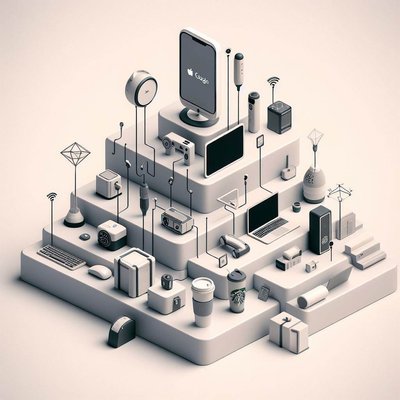

The 21st century is the century of technological advancement. The pace at which technology has advanced in the 21st century, it was unimaginable in the 20th century that the world would become so fast-paced and full of conveniences.
اکیسویں صدی ٹیکنالوجی کی ایڈوانسمنٹ کی صدی ہے. جس قدر تیزی سے اکیسویں صدی میں ٹیکنالوجی میں ایڈوانسمنٹ ہوئی ہے، بیسویں صدی میں اس کا تصور بھی نہیں کیا جا سکتا تھا کہ دنیا اس قدر تیز اور سہولیات سے بھرپور ہو جائے گی.

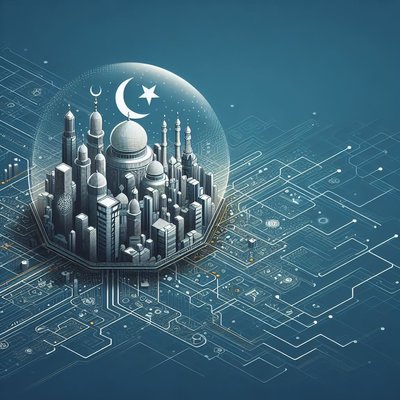
Technology has not only made our daily lives easier but also had an impact on our religious lives. Now we need to see to what extent we have embraced technological advancement and to what extent we are firmly rooted in our old and traditional ways. I believe that if technology does not diminish the essence of our worship but rather makes it easier for us to perform religious rituals, then such technology should be welcomed. However, despite this, you would be surprised to know that even in this digital age, there are people who do not show complete satisfaction with the modification of religion and express such intensity and stubbornness in opposition to technology that they consider it explicitly prohibited. For example, if we talk about loudspeakers, it is an invention and technology through which we can transmit our voices to far-off places without any difficulty. As you can see, its use has become common in every place of worship, and considerable expense is also incurred on speakers. But there is still a class of people who consider the use of speakers during worship as an innovation. They believe that the call to prayer (i.e., the method of calling people to worship) should also be simple, and prayers should be offered without the aid of technology. Similarly, their theory about other religious beliefs and practices is also that obtaining convenience through scientific technology is not entirely correct. Therefore, they do not show willingness to modify their fasting and prayers through technology. Even today, in most areas of Pakistan, the direction of the Qibla is determined by observing the sunset, but reliance is not placed on technology such as a compass or Qibla finder. Reading the Tasbih on the hand brings reward, but reading the Tasbih on a digital counter is not considered correct by some. The purpose is that in our rural areas, the environment is so simple that even bringing a smartphone into worship places is not allowed. Their view is that the smartphone is merely a temptation of the digital world.
ٹیکنالوجی نے جہاں ہماری روز مرہ کی زندگی کو آسان بنایا ہے، وہیں اس کے اثرات ہماری مذہبی زندگی پر بھی رونما ہوئے ہیں۔ اب ہمیں یہ دیکھنا ہوگا کہ ہم نے کس قدر ٹیکنالوجی ایڈوانسمنٹ کو قبول کیا ہے اور کس حد تک ہم اپنے پرانے اور روایتی طریقوں پر مضبوطی سے جمے ہوئے ہیں. میرا یہ ماننا ہے کہ اگر ٹیکنالوجی کی وجہ سے ہماری عبادات کی روح ختم نہیں ہوتی، بلکہ ہمیں مذہبی رسومات ادا کرتے ہوئے مزید آسانی حاصل ہوتی ہے تو ایسی ٹیکنالوجی کا خیر مقدم کیا جانا چاہیے. لیکن اس کے باوجود بھی آپ کو یہ جان کر حیرت ہوگی کہ اس ڈیجیٹل دور میں بھی ایسے لوگ موجود ہیں جو مذہب کی موڈیفیکیشن پر بالکل بھی رضامند دکھائی نہیں دیتے اور ٹیکنالوجی کی مخالفت میں اس قدر شدت اور عناد کا مظاہرہ کرتے ہیں کہ اسے صریح حرام سمجھتے ہیں. مثال کے طور پر اگر ہم بات کریں لاؤڈ سپیکر کی، تو یہ ایک ایسی ایجاد اور ٹیکنالوجی ہے جس کی مدد سے ہم اپنی آواز بغیر کسی مشقت کے دور دور تک پہنچا سکتے ہیں. جیسا کہ آپ دیکھتے ہیں کہ ہر مذہبی عبادت گاہ میں اب اس کا استعمال عام ہو چکا ہے اور سپیکرز پر بے دریغ خرچہ بھی کیا جاتا ہے. مگر ایک طبقہ اب بھی ایسا موجود ہے جو دوران عبادت سپیکر کے استعمال کو بدعت سمجھتا ہے. ان کا یہ ماننا ہے کہ اذان (یعنی عبادت کے بلائے جانے کا طریقہ) بھی سادہ انداز میں ہونی چاہیے اور نماز (عبادت) بھی بغیر ٹیکنالوجی کے ادا کی جانی چاہیے. اسی طرح دیگر مذہبی عقائد اور عبادات کے بارے میں بھی ان کا یہی نظریہ ہے کہ سائنسی ٹیکنالوجی کا استعمال کرکے ان میں سہولت حاصل کرنا کسی طور پر درست نہیں. لہٰذا وہ ٹیکنالوجی کی مدد سے اپنے صوم و صلاۃ کو موڈیفائی کرنے پر رضامند نہیں دکھائی دیتے. آج بھی پاکستان کے اکثر علاقوں میں قبلے کا رخ سورج کے غروب کو دیکھ کر تو معلوم کیا جاتا ہے، مگر کمپاس یا قبلہ فائنڈر جیسی ٹیکنالوجی پر اعتماد نہیں کیا جاتا. ہاتھ پر تسبیح پڑھنا باعث ثواب مگر ڈیجیٹل کاؤنٹر پر تسبیح پڑھنا بعض کے ہاں درست نہیں. الغرض ہمارے دیہی علاقوں میں تو اس قدر سادگی کا ماحول ہے کہ وہاں سمارٹ فون کو بھی عبادت گاہوں میں لے جانے کی اجازت نہیں ہے. ان کا خیال یہ ہے کہ سمارٹ فون فقط ڈیجیٹل دنیا کا ایک فتنہ ہے.

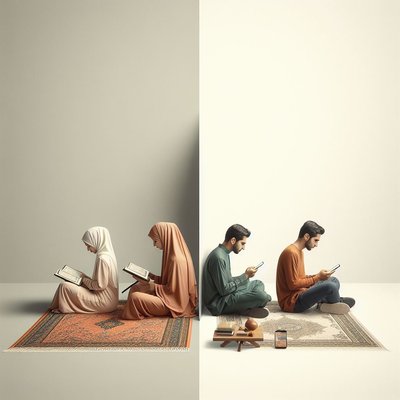
When it comes to digitization, the issue of digital imagery immediately comes under discussion. In today's era, where every child has a smartphone in their hand and VR technology has made images so realistic that it becomes difficult to distinguish between reality and fiction, the issue of imagery is still under discussion, and a significant class of scholars still considers it completely forbidden and unlawful. On the other hand, there are researchers who understand the nature of imagery and hold the theory that it is merely a simulated light and wave that cannot be considered real. Well, the point is that even today, there are many scholars who tend to avoid technology. Those who consider digital imagery as prohibited also believe that every image present in mobile phones is sinful. But despite this, they still use it. It's astonishing. How is it possible that learning prayers, fasting, almsgiving, and pilgrimage from books is acceptable but not through videos? If we learn our religious teachings through videos, such as the translation, interpretation, recitation, biography, hadith, taking online classes, lectures, or watching Islamic cartoons in animation form, then what is there to object to? If there is reward in physically lifting and reading the Quran, then why shouldn't there be reward in reading it on a mobile phone?
جب بات ڈیجیٹلائزیشن کی ہو تو فوراً ڈیجیٹل تصویر کا مسئلہ زیر بحث آجاتا ہے. آج کے دور میں جبکہ بچے بچے کے ہاتھ میں سمارٹ فون آچکا ہے اور VR ٹیکناجی نے تصاویر کو اس قدر حقیقت بنا دیا ہے کہ اصل اور نقل کا فرق کرنا مشکل ہو جاتا ہے، اس دور میں بھی تصویر سازی کا مسئلہ اب تک زیر بحث ہے اور علماء کا ایک بڑا طبقہ اب تک اسے سرے سے حرام اور ناجائز قرار دیتا ہے. دوسری جانب ایسے محققین علماء ہیں جو تصویر کی ماہیت کو جان کر یہ نظریہ رکھتے ہیں کہ یہ فقط ایک فرضی شعاع اور لہر ہے جسے قرار حاصل نہیں ہے. خیر. کہنے کا مقصد یہ ہے کہ آج بھی ایسے علماء بکثرت پائے جاتے ہیں جو ٹیکنالوجی سے دور بھاگتے ہیں. جو ڈیجیٹل تصویر کو حرام سمجھتے ہیں، ان کے نزدیک پھر موبائل اور اس میں موجود ہر تصویر گناہ ہے. لیکن اس کے باوجود بھی وہ اسے استعمال بھی کرتے ہیں. یہ حیرت انگیز بات ہے. بھلا یہ کیسے ممکن ہے کہ کتابوں سے نماز روزہ زکاۃ اور حج سیکھنا تو ٹھیک ہو مگر ویڈیوز کے ذریعے نہیں. اگر ویڈیوز کے ذریعے ہم اپنی دینی تعلیمات سیکھتے ہیں، قرآن مجید کا ترجمہ، تفسیر، تجوید، سیرت، حدیث، سیکھتے ہیں، آنلائن کلاسز لیتے ہیں، لیکچرز لیتے ہیں، یا ہمارے بچے اینیمیشنز کی صورت میں اسلامک کارٹونز دیکھتے ہیں تو اس میں برا منانے والی کیا بات ہے؟ اگر قرآن مجید فزیکلی اٹھا کر پڑھنے کا ثواب ہوتا ہے تو موبائل میں دیکھ کر پڑھنے کا ثواب کیوں نہیں ہوگا؟

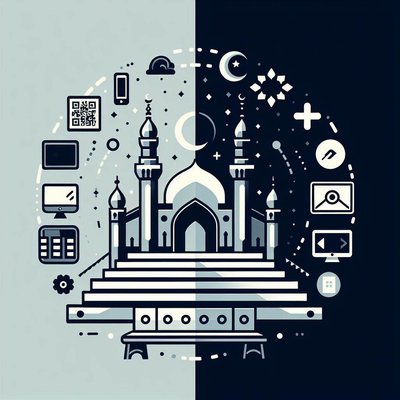
My intention is certainly not to oppose simplicity. Simplicity is a standard. If we have the strength and perform worship with diligence, then the reward is greater. But if someone can perform the same task with convenience, then it should be accepted. Today, we see countless applications available on our smartphones that can resolve even the most difficult religious issues in minutes. Even the most complicated issues of inheritance can be solved with a single click using an Inheritance Calculator application. Apps like Maktabah Shamila can provide us with references to any Hadith in an instant. We can have access to all kinds of religious guidance at any moment, so why not take advantage of it? When we are benefiting from technology in all aspects of life – agriculture, trade, economy, and daily living – then why is the use of technology in religious matters not acceptable?
میرا مقصد ہر گز یہ نہیں ہے کہ میں سادہ طریقے کی مخالفت کر رہا ہوں. سادگی تو معیار ہے. اگر ہم میں طاقت ہے اور ہم مشقت کے ساتھ عبادات کرتے ہیں تو اس کا ثواب بھی زیادہ ملتا ہے لیکن اگر کوئی شخص سہولت کے ساتھ وہی کام کر سکتا ہے تو اسے بھی قبول کرنا چاہیے. آج ہم دیکھتے ہیں کہ بے شمار ایسی ایپلیکیشنز ہمارے سمارٹ فونز میں دستیاب ہیں جو مشکل سے مشکل دینی مسئلہ کو منٹوں میں سلجھا دیتی ہیں. میراث کے مشکل ترین مسائل بھی اب Inheritance Calculator آپ کو ایک کلک میں حل کرکے دے دیتا ہے. مکتبہ شاملہ جیسی ایپلیکیشنز ہمیں لمحہ بھر میں کسی بھی حدیث کا حوالہ فراہم کر سکتی ہیں. ہمیں ہر لمحہ ہر قسم کی مذہبی رہنمائی میسر ہو سکتی ہے تو پھر کیوں نہ اس سے فائدہ اٹھایا جائے؟ جب ہم دنیا کے تمام معاملات میں کھیتی باڑی، تجارت، معیشت اور زندگی کے ہر موڑ پر ٹیکنالوجی سے مستفید ہو رہے ہیں تو مذہبی تناظر میں ٹیکنالوجی کا استعمال آخر کیوں قابل قبول نہیں؟

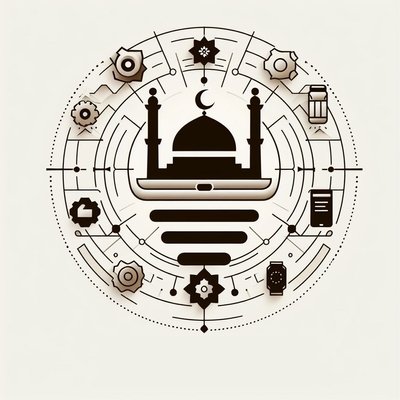
Yes, I agree. It is indeed true that we encounter both good and bad paths on the internet. Just like that, technology can offer us both benefits and drawbacks. We should promote its beneficial use under the guidance of scholars, and where technology conflicts with our beliefs, we should certainly avoid it. However, adopting a completely negative attitude towards it is not acceptable. Our religion is not so narrow-minded that it cannot accept technological advancements. Where religion provides us with convenience, we should embrace it. Our jurisprudence also follows the principle that when difficulties become widespread, leniency is granted in rulings. This means that when everyone collectively adopts a certain technology or a new method that is not explicitly contradictory to Sharia, there is room for its acceptance. Therefore, in today's modern era, the trend of using technology should be aligned with religious teachings to the extent possible to provide convenience to the common people. So that religious teachings do not become burdensome upon us. This is also the essence of a Hadith where the Prophet Muhammad (peace be upon him) said, "Facilitate things to people (concerning religious matters), and do not make it hard for them." (Sahih Bukhari: Hadith: 6125)
ہاں! میں مانتا ہوں. یہ بات ضرور ہے کہ انٹرنیٹ پر ہمیں دونوں قسم کے راستے ملتے ہیں. اچھا بھی اور برا بھی. بالکل اسی طرح ٹیکنالوجی ہمیں اچھے فوائد بھی دے سکتی ہے اور برے نقصانات بھی. ہمیں علماء کی رہنمائی میں اس کے مفید استعمال کو فروغ دینا چاہیے اور جہاں پر ٹیکنالوجی ہمارے عقائد سے متصادم رویہ اختیار کرتی ہو اس سے ضرور بچنا چاہیے لیکن مکمل ترک کر دینے کا رویہ کسی طرح قابل قبول نہیں ہے. ہمارا دین اور مذہب ہرگز اتنا تنگ نہیں ہے کہ وہ ٹیکنالوجی ایڈوانسمنٹ کو قبول نہ کر سکے. جہاں پر دین ہمیں سہولت دے رہا ہے وہاں سہولت کو قبول کرنا چاہیے. ہماری فقہ کا بھی یہی اصول ہے کہ جب ابتلاء عام ہوجاتا ہے تو حکم میں تخفیف ہو جاتی ہے. یعنی جب تمام لوگ یکجا ہو کر کسی ٹیکنالوجی کو کسی جدید طریقے کو اپنا لیتے ہیں جو شریعت سے واضح متصادم نہیں ہوتا تو اس کے قبول کرنے کے لیے گنجائش پیدا کی جاتی ہے. لہٰذا آج کے جدید دور میں ٹیکنالوجی کے رواج پاتے استعمال کو ہر ممکن حد تک دینی تعلیمات کے موافق کرکے عوام الناس کے لیے سہولت پیدا کرنی چاہیے. تاکہ ہم پر مذہبی تعلیمات بوجھ نہ بنیں اور یہی ایک حدیث کا مفہوم بھی ہے جس میں پیغمبر صلّی اللّٰہ علیہ و سلّم نے فرمایا کہ لوگوں کے لیے آسانی پیدا کرو مشکلیں مت بناؤ. (صحیح بخاری: حدیث: 6125)

Join Binance through THIS LINK for 10% off trading fees! Let's save together!
ٹریڈنگ فیس میں 10% چھوٹ کے لیے اس لنک کے ذریعے بائننس میں شامل ہوں! آئیے مل کر بچائیں!

The use of technology is no doubt a life saver not to mention improves efficiency. Quite unfortunate some people would always view difficulty as some sort of virtue when it's not.
I was one of them until a girl entered my life. :)
Smart work > Hard work
Smart work != lazy work.
Awww I'm happy for you dear 🌹
If you're happy and you know it, then your face will surely show it,
If you're happy and you know it, clap your hands!🙂
😂🤣👏🏿👏🏿👏🏿👏🏿👏🏿👏🏿👏🏿👏🏿👏🏿👏🏿
The other day I was reading something on a site and I saw one of the ads had a countdown to Iftar, I was so impressed.
I was impressed because I smiled at the thought of how technology has advanced so much that even though we are whiling away time on the internet, we can still access certain information that helps us with our religion and beliefs.
I do hope that someday making great use of technology and embracing the convenience it provides as you practice your faith will be widely accepted.
Are you aware that you're a software engineer (Washington Accord verified). In my agile development course, I studied dynamic advertisements extensively. For instance, if we're advertising a cold drink brand, the same advertisement would say "long live Nigeria" in your country and "long live Pakistan" in mine. Similarly, the same advertisement might display different languages based on demographics. The timer you discussed would adjust for each city in Nigeria, based on the user's IP address.
Certain colors can have different connotations in different cultures. For example, red might be associated with blood in some cultures but represent peace (like the Red Cross) in others, or signify a hospital sign. Therefore, website themes could adjust according to where they're displayed. I hope you found this information insightful!
Avoiding innovation is not simplicity at all atleast from my perspective. Every era has it’s own needs. If smartphones were available that time, I believe our beloved Prophet (SAW) might have used it to convey his message to larger populace.
Everything is concerned with use. It depends on us how we use it.
Islam is not just offering prayer and reciting Quran. It is to delve the hidden treasures concealed in Quran and the world but our religious scholars will not emphasise us to do so even.
Initially when train was introduced in subcontinent some renowned scholars called it dajjal as well.
But yes there are many other things which must be brought under consideration while using it . It is also a fact that smartphones are mostly controlled by a place which is considered hostile to Muslims. May be for that reason they prohibit its use
Are you aware that when mobile phones were introduced, some scholars believed that the devil was speaking from the other side.
During my time in a village in Bhakkar, I wasn't aware that it wasn't their custom to wear pants and a shirt during prayer. Coming from Karachi, I wore pants and a shirt. My cousin and I were riding on the same bike on the way home when our bike got punctured, and people shouted, "The bike of the one wearing pants has gotten punctured."
Hahaha well it happens….in today’s date it is not that much but if you might have worn jeans in any village of mianwali, the people will look you in weird ways.
You know qasim ,there is a religious cult which even tarnish education saying it is against islam. They celebrate their own eid and so on many things as well
That's quite a unique and interesting topic to write on.... You always come up with something unique. I never thought about the technology use from this angle. Now coming to the fact technology is really helpful in preaching of islam.
It was in my MS Word draft for 1.5 years. I was going through writer's block. Once it's over, of course, I will be emptying all my drafts after polishing them more. Artbeat got early access to this, I think, a month ago.
Thanks for the appreciation and encouragement.
Technology advancements are bringing both beneficial as well as some crucial effects on our life. I agreed that there are still religious scholars who are against modern technology. Technology advancement can help us in good understanding of our religious problems. I 'm happy to see many videos about my problems whenever I didn't find any solution from our nearest mosque Imaam. We need to present practical demonstration in front of these simple people who still didn't know how technology is helping in spreading Islam. Like I have application Islam 360, it has guidance for everyone.
When you mentioned simple people, it reminded me of something. These simple people are often better at the basics. Once, someone pointed out my grammatical error, and he was a school teacher in a village teaching fifth grade. I was a bit impressed. I fear the hidden talents of these simple people and never interfere in their matters.
I do agree that these videos, animations, etc., are helping to spread knowledge too, not just in one aspect but in all.
This post has been manually curated by @bhattg from Indiaunited community. Join us on our Discord Server.
Do you know that you can earn a passive income by delegating to @indiaunited. We share more than 100 % of the curation rewards with the delegators in the form of IUC tokens. HP delegators and IUC token holders also get upto 20% additional vote weight.
Here are some handy links for delegations: 100HP, 250HP, 500HP, 1000HP.
100% of the rewards from this comment goes to the curator for their manual curation efforts. Please encourage the curator @bhattg by upvoting this comment and support the community by voting the posts made by @indiaunited.
Pros and cons come hand in hand. And the sphere where technology caused many problems, it also benefited in the aspects such as religion very effectively.
You chose a really good topic to write for✨
As you were an early access reader, I hope you enjoyed the amount of effort it took to convert simple ideas into a complete blog. You didn't realize at first that the points I wrote on my traveling journey would turn into a beautiful blog post. It's like a cocoon turning into a butterfly. Thanks for the encouragement. It helps me to write more.
Technology is not important for Islam but it helps us for learning our religion. We hear Azan from the speaker of the mosque
daily and get Sawab. Technology is not bad but the minds of people who use this. Everyone has his mind and needs. But some people misuse of internet.
Everything now we experience has been described in Quran Majeed not in an open way but in a hidden way. I will give you an example.
Allah sent his messages to our prophet Hazrat Muhammad P.B.U.H. by his messenger Hazrat Jibril A.S. and nowadays this work is done by us with internet, technology.
ٹیکنالوجی اسلام کے لیے اہم نہیں ہے لیکن اسلام کو سمجھنے میں آسانی فراہم کرتی ہے۔ ہم مسجد کے اسپیکر سے اذان سنتے ہیں۔ روزانہ اور صاب حاصل کریں۔ ٹیکنالوجی بری نہیں ہے لیکن اس کا استعمال کرنے والے لوگوں کے دماغ۔ ہر ایک کا اپنا ذہن اور ضروریات ہوتی ہیں۔ لیکن کچھ لوگ انٹرنیٹ کا غلط استعمال کرتے ہیں۔ اب ہم جو کچھ بھی تجربہ کر رہے ہیں وہ قرآن مجید میں کھلے انداز میں نہیں بلکہ پوشیدہ انداز میں بیان کیا گیا ہے۔ میں آپ کو ایک مثال دوں گا۔
اللہ نے اپنے پیغامات ہمارے نبی حضرت محمد صلی اللہ علیہ وسلم کو بھیجے۔ اپنے رسول حضرت جبرائیل علیہ السلام کے ذریعے اور آج کل یہ کام ہم انٹرنیٹ، ٹیکنالوجی سے کر رہے ہیں۔
It reached an alarming degree when the government often sends reminder messages on sims to parents to watch over what their underage children are doing on the internet.
Indeed, on the blockchain, nothing gets removed. So, much better. :)
Very well idea. I think this blog should also be uploaded on social media.
Let's see what the future holds for us.
Moaz your first line in comment well said۔ I never thought in this way!
I went to an imam recently and he told me to buy the digital counter for counting the salutations that I usually say so I told him that I will use the "Prayer rope" instead he argued with me saying the digital counter has very little electricity inside it but I refused. The thing is Digital things have their uses and can be implemented for the welfare of religion in many shapes and forms however it is just a habit thing for me really.
Thanks for sharing your personal experience. I really appreciate it.
قرآن کریم میں بہت بار "تحقیق " کا ذکر ملتا ہے اور جتنی بھی ٹیکنالوجی ہے وہ انسان کے حاصل کردہ علم اور تحقیق کا نتیجہ ہے۔ اگر دیکھا جائے تو یہ ضرور کہا جائے گا کہ انسان نے یہ علم مذہب، روایات ، تہذیب، معاشرے اور زندگی کے باقی اصولوں سے ہی تو سیکھا ہے۔ ایک مخصوص طبقہ مخالفت ضرور کرتا ہے اور انکا احترام کرنا چاہیئے جیسا کہ آپ نےکہا ہے کہ آپ اُنکی مخالفت نہیں کر رہے بلکہ صرف آگہی پھیلا رہے ہیں تو میں بھی کچھ ایسا ہی خیال رکھتا ہوں۔
اس میں کوئی شک نہیں کہ آج ہم جو ٹیکنالوجی دیکھ رہے ہیں وہ سب ہماری تحقیق کا نتیجہ ہے۔ لوگوں کی باتوں اور ان کے خیالات میں خود کو شامل کرنا محض ایک احمقانہ عمل ہے جو لوگ کرتے ہیں، میرے نزدیک کونے میں رہ کر ہر چیز کا مشاہدہ کرنا احمقانہ لڑائیوں کا حصہ بننے سے بہتر ہے۔
Very good and informative blog you wrote. You choose to express your thoughts regarding information technology. In this information technology era how can a muslim can relate their religious beleifs regarding advancement in information technology era.
Thanks, Rai humair for your appreciation. This blog was my draft for so long but I was waiting for more great ideas to be part of this draft and then I'll share it with my people and tell them how technological advancement is helpful and a problem at the same time.